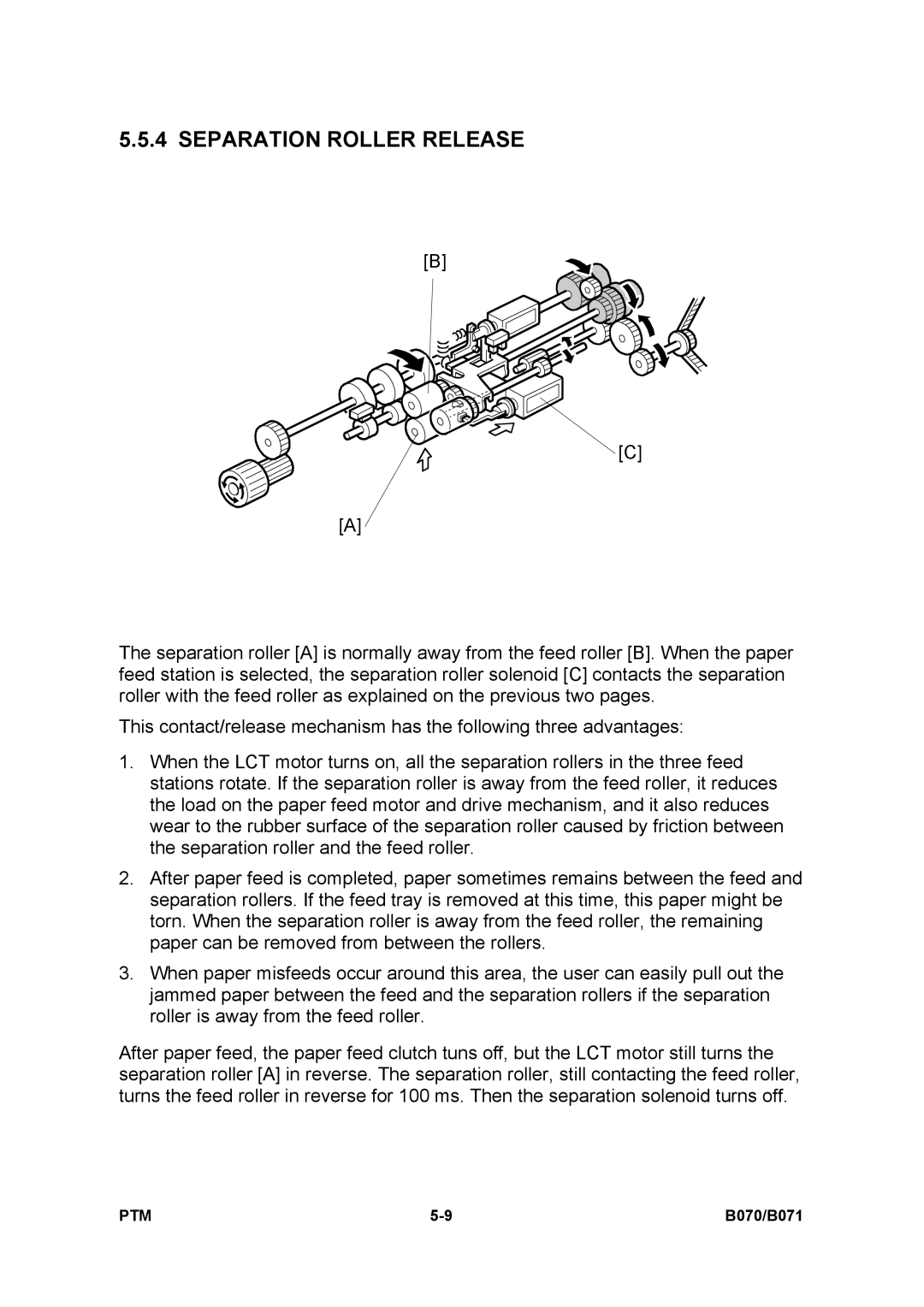
5.5.4 SEPARATION ROLLER RELEASE
[B]
![]() [C]
[C]
[A]
The separation roller [A] is normally away from the feed roller [B]. When the paper feed station is selected, the separation roller solenoid [C] contacts the separation roller with the feed roller as explained on the previous two pages.
This contact/release mechanism has the following three advantages:
1.When the LCT motor turns on, all the separation rollers in the three feed stations rotate. If the separation roller is away from the feed roller, it reduces the load on the paper feed motor and drive mechanism, and it also reduces wear to the rubber surface of the separation roller caused by friction between the separation roller and the feed roller.
2.After paper feed is completed, paper sometimes remains between the feed and separation rollers. If the feed tray is removed at this time, this paper might be torn. When the separation roller is away from the feed roller, the remaining paper can be removed from between the rollers.
3.When paper misfeeds occur around this area, the user can easily pull out the jammed paper between the feed and the separation rollers if the separation roller is away from the feed roller.
After paper feed, the paper feed clutch tuns off, but the LCT motor still turns the separation roller [A] in reverse. The separation roller, still contacting the feed roller, turns the feed roller in reverse for 100 ms. Then the separation solenoid turns off.
PTM | B070/B071 |
